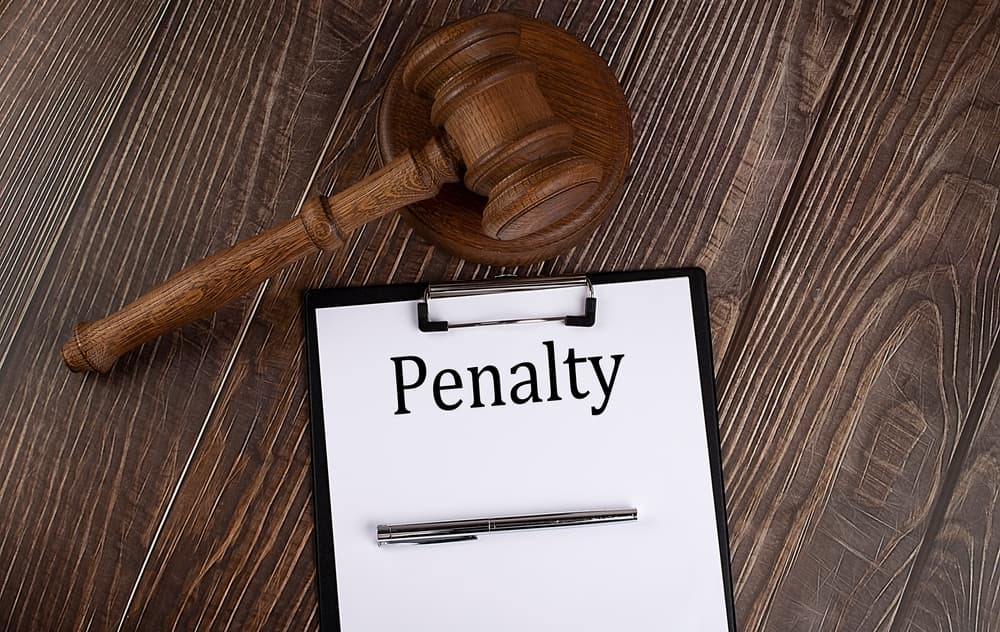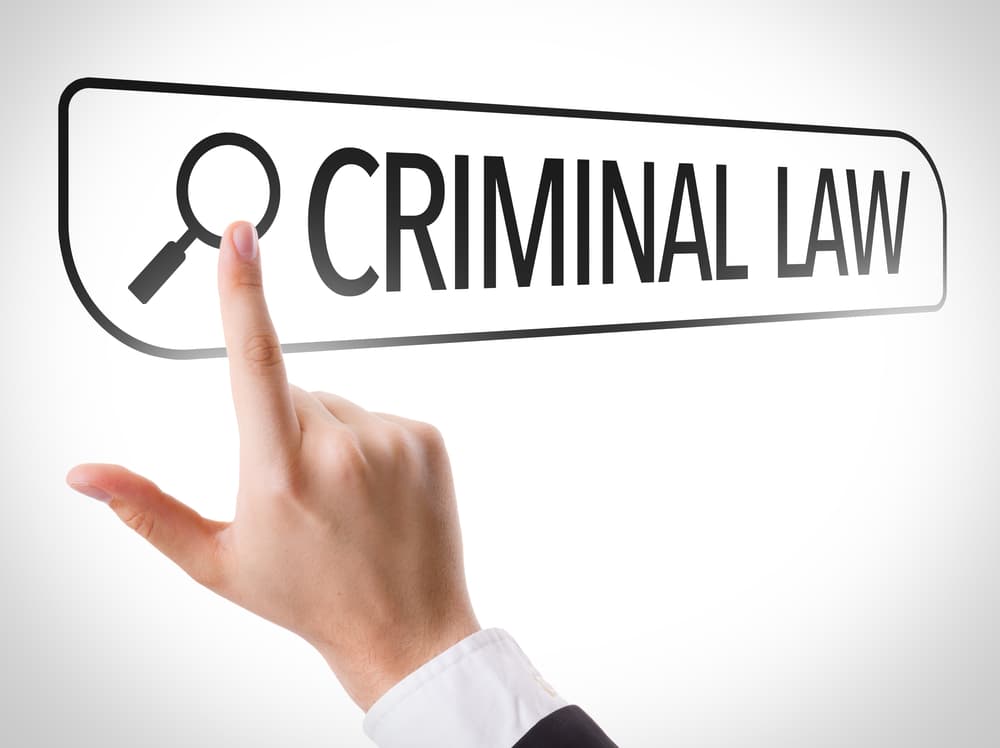
What are the Penalties for Shoplifting in New Jersey?
Did you know that shoplifting is one of the most common crimes in New Jersey? While most people don’t view the charge as serious, they will soon find out, if arrested, that they’re facing some severe penalties. That’s why you’ll need to contact a criminal defense attorney who regularly handles shoplifting cases if you’re charged with the crime.
The law draws the line between a misdemeanor and felony based on the dollar amount of merchandise stolen. If you steal more than $200 in merchandise, the charge becomes a felony.
New Jersey’s Monmouth Mall, Jersey Shore Premium Outlets, Quaker Bridge Mall, and Willowbrook Mall are some high-profile shoplifting shopping centers that arrest shoplifters. In about five percent of shoplifting cases nationwide, kleptomania, which affects primarily females, is blamed for the activity.
N.J.S.A. 2C:20-11 states that a convicted shoplifter may face a fine, time in jail, and a criminal record if caught. The charge can also affect the immigration status of a non-U.S. citizen. With the assistance of a shoplifting lawyers, you can avoid the fallout of a shoplifting charge.
Schedule a Free Initial Consultation Today!
Forms of Shoplifting in New Jersey
N.J.S.A. 2C:20-11 highlights five types of shoplifting activities in the Garden State.
Taking merchandise on purpose. If a defendant takes merchandise from a store on purpose with the intent to deprive the owner of an item’s value, they can be charged with shoplifting.
Concealing items with the intent to avoid payment. People who conceal merchandise from view with the idea of stealing it can also be indicted for shoplifting.
Changing or transferring a price. If you tamper with price tags, this is also a form of shoplifting. You can also be arrested for this offense if you remove a price tag.
Transferring merchandise into a container or other conveyance to shoplift. Some shoplifters come into stores with a baby carriage to steal merchandise. They use a booster bag lined with aluminum foil so they can avoid detection from electronic security devices when they leave the store. They may also use a backpack, a shopping bag, or a garment with pockets for this purpose.
Under-ringing merchandise is also considered shoplifting. If a cashier intentionally rings merchandise so it does not reflect the actual retail value, they may be charged with shoplifting along with the customer. A technically savvy customer may attempt to under-ring merchandise at a “U-Scan.”
Under-ringing covers merchandise leaving a store, so don’t confuse this practice with preparing a fraudulent refund receipt, which covers items that a customer returns to the retailer.
Penalties and Fines

Again, what you pay in penalties and fines depends on the amount of merchandise you steal, if the crime is a first offense, and whether you’re an adult or minor. Minors are not subject to the same penalties that adults face when caught.
They may go to a juvenile detention center. However, courts usually focus on a diversion program rather than confinement. They may order the minor to pay restitution, perform community service, or serve probation.
Shoplifting Offenses
Each listed offense below is based on the amount of stolen merchandise.
Disorderly Persons Offense
A disorderly person’s offense is charged when the alleged shoplifter steals under $200 of merchandise. If you’re convicted of this charge, you can spend as much as six months in jail and pay a fine of up to $1,000.
Fourth-Degree Offense
If you steal or shoplift items valued between $200 and $500, you can face a prison term of 18 months and a fine of up to $10,000.
Third-Degree Offense
If the merchandise you shoplift is between $500 and $75,000, you’re facing a felony and a prison term of three to five years. You may also have to pay a fine of up to $15,000.
Second-Degree Offense
Shoplifting items worth more than $75,000 can result in a five- to ten-year incarceration and a fine of up to $150,000.
Shoplifting and Loss Prevention in New Jersey
Many of the malls and large department stores in New Jersey hire loss prevention staff members to handle problems with shoplifting at Westfield Garden and Short Hills in retailers like Macy’s, JCPenney, and Bloomingdale’s.
Steps to Take if You’re Accused of Shoplifting
- If you’re caught allegedly shoplifting, the store security, a retail associate, or a store manager might try to get you to confess – whether they thought you shoplifted or intended to steal an item. The best stance to take is not to say nothing.
- Don’t discuss the situation until you hire a criminal defense lawyer. Let your accuser know that you wish to speak to an attorney.
- Follow the instructions of the police if they are called to deal with the shoplifting incident. Follow the officer’s request – providing your I.D. or contact details. Just don’t admit to anything or sign any type of document. Be polite. Don’t get angry. Stay calm and comply.
How Stores May Handle First-Time Shoplifters
A store may handle a first-time shoplifter by banning their shopping privileges or demanding the shoplifter pay the legal costs involved in taking the case to court. If a shoplifter leaves the store with merchandise, they may have to pay the retailer restitution.
The Civil Demand Letter
Whether or not the police are called, it is usual for stores, especially larger retailers, to send a civil demand letter. This letter demands payment of a civil fine, including a payback of the stolen merchandise. The store may also demand the shoplifter cover expenses for loss prevention employees or legal fees.
The letter allows the accused person to take care of the issue without going through further civil or criminal proceedings. If you receive a letter, just make sure you speak to a criminal defense attorney first.
How a Criminal Defense Lawyer Can Help You If You Get Charged with Shoplifting

It’s important to contact a criminal defense attorney if you are charged with any form of shoplifting. They can represent you in court and help reduce your penalties.
An attorney can explain the charges to you. They will investigate all the factors of your case, collect and analyze the evidence, and identify any possible weaknesses in the prosecution’s case.
Depending on the severity of the shoplifting charge, your lawyer can negotiate the charge down or even have the case dismissed. Should the case go to trial, an attorney will prepare and present the defense, cross-examine witnesses, and develop a compelling argument on your behalf.
If you get convicted, an attorney will serve as your legal advocate – presenting mitigating factors or arguing for more lenient sentencing, such as probation or community service.
In some cases, defendants may wish to appeal their verdict. If this happens, a lawyer will direct you through the appeals process and serve as your representative in a New Jersey appellate court.
Hire a New Jersey Criminal Defense Attorney Now
While shoplifting might not seem like a big deal crime, it can have serious repercussions. Ensure you retain the services of a New Jersey criminal defense attorney who handles shoplifting cases. Doing so will stack the odds in your favor.
Lindsay Bernstein
Latest Posts
What Happens if You Get Caught for Shoplifting?
If someone accuses you of shoplifting, you may face serious legal consequences. The first and most obvious risk you face is the immediate threat to your...
Common Offenses That Lead to a Suspended License in New York
We frequently overlook or undervalue our ability to drive, regarding it as a right rather than a privilege. Though most of us know that there are fines and...
